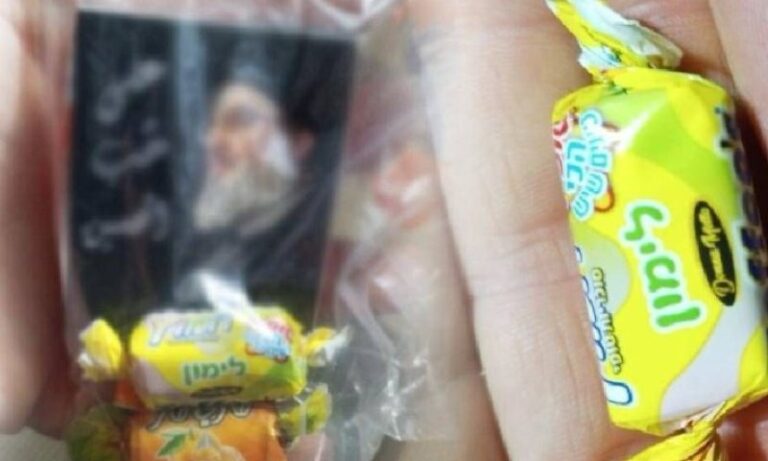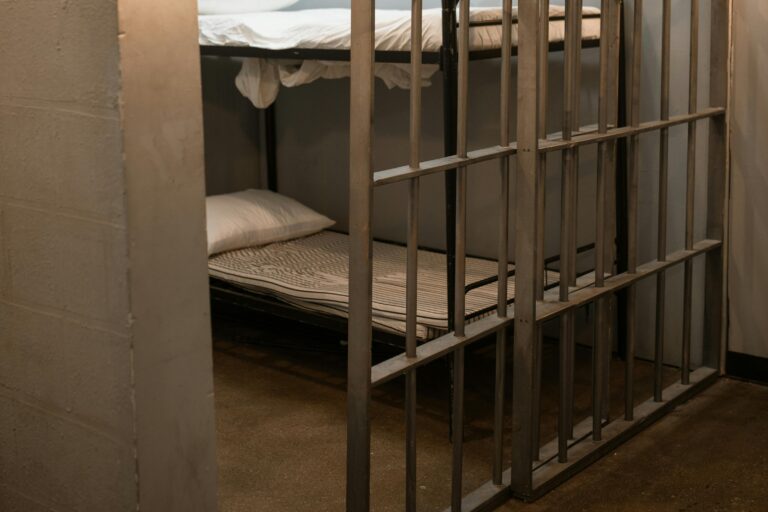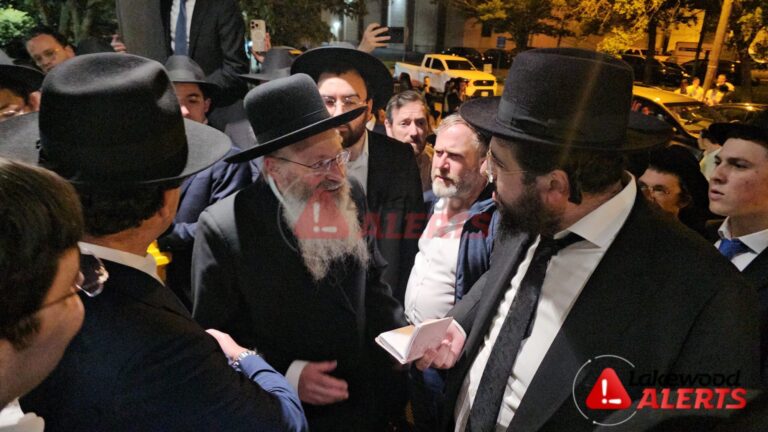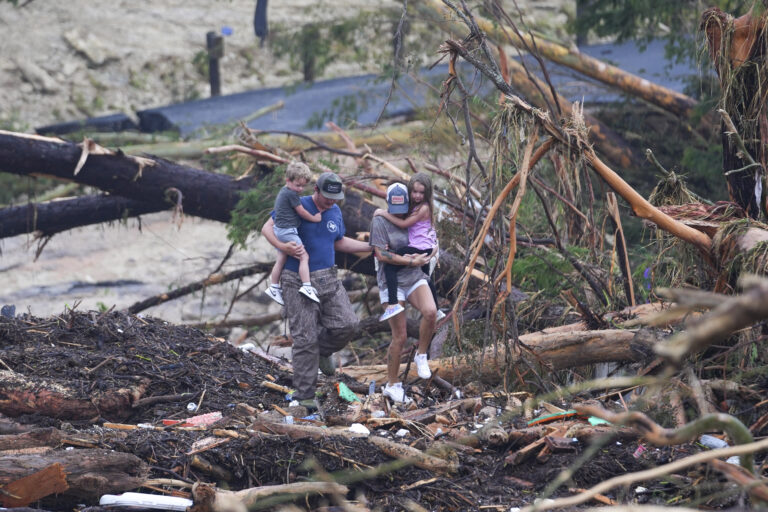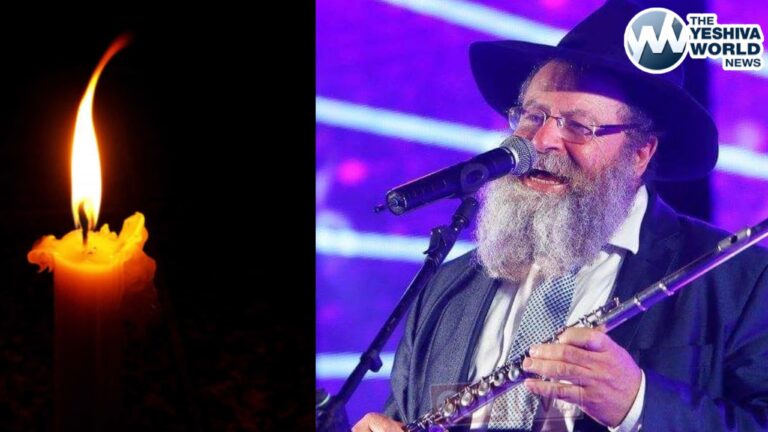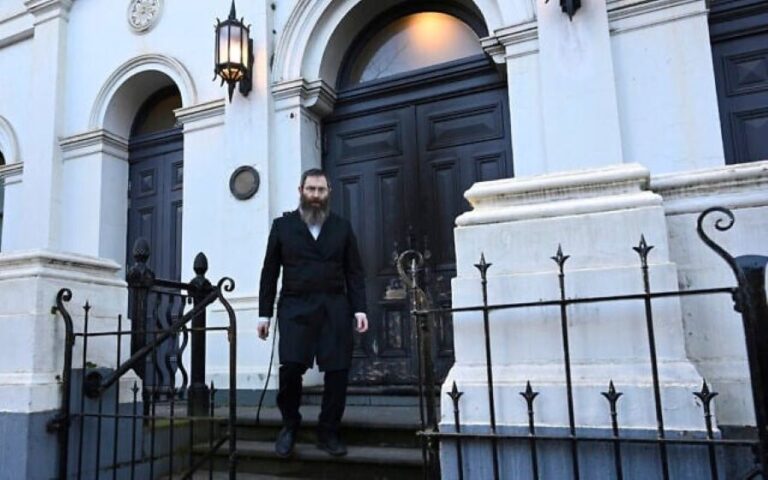Written By Rabbbi Moishe D. Lebovits
KOF-K Kosher
To receive free copies of Halachically Speaking Seforim (1-5)
click here http://jewcer.com/project/halachically-speaking-volume-6-1
and Help Us Publish Volume 6.
Last week we dealt with many of the customs regarding certain activities during sefira. In this article we will continue to deal with other customs regarding sefira. For example: Are vorts permitted to be made during sefira with dancing? Is listening to music permitted while driving or exercising? Is listening to acapela music permitted? Can one buy clothing etc during sefira? Is moving into a house permitted? When can weddings be made?
Engagements and Weddings
Weddings are not permitted during sefira[1] (unless it is not one’s time of holding sefira) but engagements are permitted during sefira.[2] One is also permitted to make a vort[3] but dancing is not allowed.[4]
The custom is that one is permitted to get married and have music[5] on Lag B’omer.[6] Some say that the only time that one may get married on Lag B’omer is by day.[7] The Sefardim have the custom to marry on the thirty-fourth day of the omer.[8] When Lag B’omer falls out on Friday then even the Sefardim may make weddings on Thursday night.[9] The overwhelming custom is that one may get married the night of Lag B’omer.[10] However others have the custom not to get married on Lag B’omer as well.[11] A wedding that started on Lag B’omer by day may continue into the night.[12] Dancing and music are permitted at a wedding on Lag B’omer.[13]
It is interesting to point out that one who goes to a chasana during the time he is observing the restrictions of sefira may only dance after the chosson and kallah come out from taking pictures. This is because before they come out the dancing is not considered being mes’ameach the chosson and kallah.[14]
Even those who hold like the Arizal and are noheg the issur of taking haircuts on all days of sefira may make a wedding on Lag B’omer.[15]
Some say one should try to make sure not to make weddings during sefira since some people may be holding sefira. Instead they should be made on Lag B’omer, or from Rosh Chodesh Sivan and on.[16]
Attending a Wedding during one’s Sefira
One who is during his sefira may still attend a wedding of someone who is making a wedding when the bal simcha is not holding sefira. This is even if he wants to dance and listen to music there.[17]
Sheva Berochos
Some say no dancing or music is allowed during sheva berochos if the one attending is during his sefira.[18] However, the custom is to be lenient and permit it.[19]
Dancing on Chol Hamoed
Some say dancing which is not a mitzvah may not be permitted on chol hamoed.[20] According to this, one would not be able to go to a party if they have dancing (even without music). If one is going to be uplifted, such as going to a Rebbe’s tisch, it is permitted to dance.[21] The custom seems to be that we are lenient with dancing and listening to music on chol hamoed.[22]
Weddings after Lag B’omer
According to those who hold sefira until Lag B’omer, one is permitted to make weddings after Lag B’omer and on.[23] However, the custom is that weddings (haircuts are different because since there is less joy)[24] are not made from after Lag B’omer until the day of Sivan,[25] while others say the custom is to be lenient even after Rosh Chodesh Sivan.[26]
Dancing after Rosh Chodesh Sivan
Some say from Lag B’omer until Shavuos no non-mitzvah dancing should take place, even if one is not holding sefira.[27] However, the custom of many is to be lenient with this.[28] There is an uncertainty if non-mitzvah dancing is permitted from Rosh Chodesh Sivan until Shavuos.[29]
Seudas Reshus
One is permitted to make a seuda during these days which is not a mitzvah but one may not have dancing.[30] This is true for a fundraising dinner as well.[31]
Seudas Mitzvah
One is permitted to make other seudas mitzvahs during sefira such as a siyum mesechta.[32] Dancing is permitted by this meal if one normally dances by such a meal.[33] Those who dance on Shabbos would be permitted to do so on Shabbos during sefira since there is no aveilus on Shabbos.[34]
Bar Mitzvah /Bas Mitzvah
One is permitted to make a bar mitzvah or bas mitzvah during sefira without music or dancing.[35]
Chanukas Habayis
Some say one should not have a chanukas habayis during sefira. Nonetheless, the custom is to be lenient. [36]
Music
The early poskim do not mention a custom to refrain from music during sefira. However, later poskim mention that listening to music is not allowed during sefira.[37] Therefore, the custom is that music in any form may not be listened to during sefira, even in one’s home[38] (see below). However, when it is permitted to have dancing, listening to music or having a band play music is also permitted.[39]
A cappella
Many say singing without music is not permitted.[40] Therefore, the newest fad of listening to a cappella CDs cannot be a viable loophole during sefira. It defeats the whole purpose of the isssur because the musical experience is what is really ossur, which the a cappella singing provides in full.[41] There are some poskim who maintain that one is permitted to listen to singing on a CD etc without music even if there are pleasant harmonies.
Radio, Tapes and CDs
The custom is that one is not permitted to listen to music from the radio, tapes or CDs during sefira (even if one is lenient and listens to music all year).[42] If the tape only has slow music and one is listening in order to lift his spirit, then doing so is permitted.[43] However, others say if one sings into a tape without beats it is considered music and forbidden.[44] Included in this discussion is classical music or tapes from a chazzon.[45] For example, one who is sick r”l in bed and needs music to lift his spirit is permitted to listen to such music according to the first opinion.[46]
Children’s CDs
One is permitted to listen to a children’s music CD etc since he is not doing so for enjoyment, but rather that his child should enjoy the music.[47] Children who have reached the age of chinuch should refrain from listening to music during sefira.[48]
Driving
One who wishes to listen to music while driving in order to keep him awake may do so even during his sefira period.[49] One who does not listen to music and is n a car where others are listening to music (not during their sefira period) does not have to ask for the music to be shut off.[50]
Parnasa
One who depends on playing musical instruments for his parnasa is permitted to practice a musical instrument or play one at a wedding or other seudas mitzvah (even if he is holding sefira).[51] One who is having lessons can continue during sefira.[52]
Singing
Some had the custom not to sing during sefira.[53] However, l’maseh, one is permitted to sing a song during sefira without the accompaniment of music.[54] This is common when signing while learning, while davening, or during zemiros.[55]
Background Music
One who walks into a store and hears background music may listen to the music and is not obligated to close his ears. The same is true if one wants to have a meeting in his house and put on a little background music.[56] Similarly, listening to music when being placed on hold,[57] or when waiting in a waiting room at a doctor, etc is permitted.[58]
Without Intent
Many cases of listening to music are not because one wishes to enjoy the music. For example, one who is exercising and wishes to listen to music to make the exercising better is permitted to do so since his intent is not to enjoy the music.[59] In a playgroup or nursery a teacher may play music even during her sefira.[60]
Dancing and Music on Lag B’omer
Many have the custom to make bonfires (and dancing) on the night of Lag B’omer. Others say that the simcha should start by day.[61] However, because of Rav Shimon Bar Yochai the minhag is to do the bonfire and dancing etc at night all over the world and not only in Meron.[62] However, music not accompanied by a bonfire should not be listened to until the next day after neitz hachama.[63]
Cutting Nails
One is permitted to cut finger or toe nails during sefira.[64]
Shehechiyanu
Some have the opinion that no shehechiyanu is recited during sefira.[65] However, according to many poskim one is permitted to recite a shehechiyanu during these days,[66] one who has a custom otherwise should adhere to it.[67] According to all opinions, doing so is permitted after Lag B’omer (if one holds sefira until Lag B’omer).[68]
Wearing and buying new Clothes
According to many poskim, one is permitted to buy[69] new clothing and wear them during sefira even if it is clothing that one recites a shehechiyanu on.[70] There is another opinion that is stringent and maintains doing so is not allowed.[71] One may fix garments during sefira.[72] Others say the custom is to be stringent and avoid doing so during one’s sefira.[73] In any case, one who is getting married or has a different need that may come up is permitted to buy and wear new garments during sefira even according to the stringent opinion.[74] Even according to the stringent opinion one may buy furniture etc since the opinion was referring to buying clothes.[75]
Moving into a Home
One is permitted to buy[76] or move into a new home during the sefira period.[77] Although painting one’s home is forbidden during the nine days,[78] doing so during sefira is permitted.[79] The same is true for doing construction on a home during sefira,[80] or putting up wallpaper.[81]
“No Work”
Some have the custom[82] that a woman (many say men as well)[83] may not do work from shekia until the next morning,[84] during the entire sefira period.[85] One of the reasons is since the students of Rabbi Akiva died before shekia and were buried after shekia.[86] Some say the custom is only until a half hour after shekia.[87] According to this reason after Lag B’omer one can be lenient.[88] Another reason for refraining from work is because when the Torah says we should count seven weeks it uses the word “Shabbosos” which means rest. According to this reason, one only needs to refrain from work until after counting sefira for that day.[89] Some say women who do not count sefira should avoid working a whole night.[90] Some say even according to the stringent opinion, any work which is permitted during chol hamoed is permitted here too.[91] In addition, only work which takes time,[92] such as sewing garments, and washing dishes and folding laundry are permitted.[93] In addition, house work such as cooking, cleaning etc is permitted.[94]
The custom of many is not to be concerned with this whole practice,[95] and one should follow his family’s custom.[96]
[1] Tur, Shulchan Aruch 493:1, Shaarei Teshuva 1, Kitzur Shulchan Aruch 120:9, Mishnah Berurah 1, Aruch Hashulchan 2. One is not permitted to be a mesader kiddushin at a wedding which is made during sefira if it was not allowed to be done (Shalmei Moed pages 454-455). Refer to Yabea Omer O.C. 5:38 if getting married between Pesach and Shavuos is permitted if one has not fulfilled the mitzvah of having children yet i.e. first marriage.
[2] Avudraham ibid, Rabbein Yeruchum ibid, Maharil ibid, Tur, Bais Yosef, Shulchan Aruch 493:1, Levush 1, Magen Avraham 1, Kitzur Shulchan Aruch 120:9, Mishnah Berurah 3, Aruch Hashulchan 2, Kaf Hachaim 7. Refer to Shevet Hakehusi 6:201 who says the custom is to be stringent.
[3] Magen Avraham 1, Be’er Heitiv 2, Chok Yaakov 4, Shulchan Aruch Harav 1, Kitzur Shulchan Aruch 120:9, Mishnah Berurah 3, Aruch Hashulchan 2, Kaf Hachaim 9, Chazzon Ovadia Yom Tov page 258:32.
[4] Harav Yisroel Belsky zt”l, see Chok Yaakov 4, Shulchan Aruch Harav 1, Kitzur Shulchan Aruch 9, Mishnah Berurah 3, Aruch Hashulchan 2, V’yan Yosef O.C. 312. The difference between a rikud and mechol is that a rikud is with two people and a mechol is a circle with many people (Ben Pesach L’Shavuos 15:4:footnote 1, Halichos Shlomo Moadim 2:11:footnote 21).
[5] Kaf Hachaim 9.
[6] Rama 493:1, Magen Avraham 5, Levush 2, Minchas Elazar 4:60, Darchei Chaim Vesholom 636, Yechaveh Daas 3:31. If the chosson has one minhag and the kallah has a different one, the custom of the chosson is followed (Refer to Yechaveh Daas 3:31, Igros Moshe O.C. 1:158, Yismach Lev 1:page 100). Some say the dancing should be done by day and the seuda may be done at night of Lag B’omer (Halichos Shlomo Moadim 2:page 365:footnote 81).
[7] Elya Rabbah 7, Pri Megadim Eishel Avraham 1, Kitzur Shulchan Aruch 120:6, Mishnah Berurah 11, Kaf Hachaim 26, Sharei Halacha U’minhag 222:page 165, Yismach Lev 1:page 101 quoting the opinion of Harav Chaim Kanievesky Shlita. Refer to Shulchan Aruch Harav 5.
[8] Shulchan Aruch 493:1, Pri Chadash 1, Biur Halacha “yeish,” Kaf Hachaim 25, Minchas Yitzchok 4:84, Yechaveh Daas 3:31, Yabea Omer O.C. 3:26, Ben Pesach L’Shavuos page 227.
[9] Yechaveh Daas 4:32, see Elya Rabbah 7.
[10] Machzik Beracha 5, Aruch Hashulchan 4, Kaf Hachaim 28, Mahari Asad (Yehuda Yaleh) 2:39, Chelkes Yaakov 1:97 (or O.C. 207), Igros Moshe O.C. 1:159, Shevet Halevi 8:168:5, Shearim Metzuyanim Behalacha 120:13. Refer to Hilchos Yemey Ha’omer pages 40-43 in depth.
[11] Divrei Yoel 1:26:1, Natei Gavriel Pesach 3:page 214:footnote 17 (minhag in Skver), see Lag B’omer page 178:footnote 31.
[12] Daas Torah 493:1, Igros Moshe E.H. 1:97:page 247, Natei Gavriel Pesach 3:page 217:19, Mikadesh Yisroel 103, Chut Shani Shabbos 4:page 380.
[13] Igros Moshe E.H. 1:97, 2:95, Avnei Yushfei 1:113.
[14] Harav Yisroel Belsky zt”l.
[15] Harav Yisroel Belsky zt”l, see Minchas Elazar 4:60.
[16] Eretz Yisroel 18:2.
[17] Igros Moshe O.C. 1:159, 2:95. E.H, 1:97, Emes L’Yaakov 493:footnote 465, Mikadesh Yisroel 70, Shiurei Halcaha (Harav Felder Shlita) page 18, Chut Shani Shabbos 4:page 380.
[18] Refer to Shevet Halevi 3:157.
[19] Harav Yisroel Belsky zt”l, see Igros Moshe E.H. 1:97, Aveni Yushfei 1:113. Refer to Ohr Yisroel 4:pages 55-69 if doing so is permitted during the three weeks when the wedding was before the three weeks.
[20] Pri Megadim M.Z. 493:2, Kaf Hachaim 9, see Birchei Yosef 2.
[21] Natei Gavriel Pesach page 301:3:footnote 6.
[22] Opinion of Harav Elyashiv zt”l quoted in Piskei Shmuos page 49, Oz Nidberu 10:23:2, Piskei Teshuvos 493:6, Doleh U’mashka page 193, Shiurei Halcaha (Harav Felder Shlita) pages 14-15, Mikadesh Yisroel 67, Shulchan Aruch Hamekutzar 3:page 69:footnote 17. Refer to Kaf Hachaim 493:9.
[23] Refer to Tur 493, Bais Yosef, Rama 1, Pri Chadash 3, Chazzon Ovadia Yom Tov page 253, see Ben Pesach L’Shavuos page 271:footnote 1.
[24] Refer to Ben Pesach L’Shavuos page 271:footnote 1 (bottom) who explains from Harav Shmuel Shapiro zt”l a novel approach on why haircuts are different than weddings after Lag B’omer.
[25] Refer to Bach, Taz 493:2, Lekutei Maharich 3:page 569 (new), Chut Shuni Shabbos 4:page 380, see Minchas Yitzchok 4:84:7.-9, Doleh U’mashka page 194. Some are stringent until after Shavuos (Taz 493:2).
[26] Igros Moshe O.C. 1:159, Mikadesh Yisroel 75.
[27] Opinion of Harav Shlomo Zalman Aurbach zt”l quoted in Ben Pesach L’Shavuos page 285:footnote 4, Avnei Yushfei 1:98, Shiurei Halacha (Harav Felder) page 29 quoting the opinion of Harav Elyashiv zt”l, see Shaar Hatzion 493:4. Refer to the opinion of Harav Wosner zt”l quoted in Piskei Shmuos page 51 who is lenient.
[28] Shiurei Halacha (Harav Felder Shlita) page 29:footnote 49.
[29] Pri Megadim Eishel Avraham 1, Shaar Hatzion 493:4, Kaf Hachaim 9.
[30] Chok Yaakov 4, Shulchan Aruch Harav 493:1, Aruch Hashulchan 2.
[31] Emes L’Yaakov 493:footnote 466, Minchas Yitzchok 1:111.
[32] Natei Gavriel Pesach page 296:1.
[33] Opinion of Harav Elyashiv zt”l quoted in Piskei Shmuos page 49, see Yechaveh Daas 6:34. Refer to Magen Avraham 1, Machtzis Ha’shekel, Chok Yaakov 4. The opinion of Harav Wosner zt”l quoted in Natei Gavriel page 297:footnote 7 and in Piskei Shmuos ibid is that the custom is to be stringent.
[34] Natei Gavriel Pesach ibid:page 302:6. One is permitted to dance after kiddush levana even during sefira (Piskei Shmuos quoting the opinion of Harav D’bilitsky Shlita).
[35] Harav Yisroel Belsky zt”l. Refer to Halichos Shlomo Moadim 2:11:17:footnotes 26, 57, and 65, Shiurei Halacha (Harav Felder Shlita) page 28, see Yechaveh Daas 6:34, Chazzon Ovadia Yom Tov pages 258-259 and Ohr Letzion 3:17:1 who are lenient.
[36] Refer to Sefer Habayis 22:13:page 288, Ben Pesach L’Shavuos page 295, Chazzon Ovadia Yom Tov pages 270-271. In regard to a hachnosas sefer Torah during sefira see Halichos Shlomo Moadim 2:11:footnote 57, and Chazzon Ovadia Yom Tov page 259. The Piskei Shmuos page 53 brings a lenient opinion. Harav Dovid Feinstein Shlita is also lenient (This question was posed in regard to the hachnosas Sefer Torah at the Agudah Dinner ’08, as related by Harav Shimshon Sherer Shlita).
[37] Aruch Hashulchan 493:2, Igros Moshe O.C. 1:167, 3:897, 4:21:4, E.H. 1:98, Oz Nidberu 10:23:2, Kinyan Torah 2:99, Minchas Yitzchok 1:111, Vayivorech Dovid 1:69, Ben Pesach L’Shavuos page 285, Shiurei Halacha (Harav Felder Shlita) page 24, Minhag Yisroel Torah 2:493:8.
[38] Igros Moshe O.C. 2:137.
[39] Yechaveh Daas 6:34.
[40] Opinions of Harav Elyashiv zt”l and Harav Korelitz Shlita quoted in Piskei Shmuos page 54.
[41] Harav Yisroel Belsky zt”l opinion of the author of the Rivevos Ephraim (personal telephone conversation).
[42] Yechaveh Daas 3:30, Rivevos Ephraim 4:page 416, 7:50:1, 340:2, Halichos Shlomo Moadim 2:11:14:footnote 20, Mikadesh Yisroel 64, Shalmei Moed page 453.
[43] Harav Yisroel Belsky zt”l, see Halichos Shlomo Moadim 2:11:14, Shalmei Moed page 452, opinion of Harav Chaim Kanievesky Shlita quoted in Piskei Shmuos page 56, Chut Shuni Shabbos 4:page 379.
[44] Refer to Mishnas Sicher 149, Shevet Halevi Y.D. 57, 8:127, Oz Nidberu 8:58:3:page 135, Pe’as Sudcha 76, Chut Shani Shabbos 4:page 379, see Tzitz Eliezer 15:33:2 if a tape is included in the gezeira of no music all year round because of zecher l’churban.
[45] Halichos Shlomo Moadim 2:11:footnote 22, Vayivorech Dovid 1:69, Piskei Shmuos page 56 quoting the opinion of Harav Sheinberg zt”l. See Piskei Shmuos ibid quoting the opinion of Harav Chaim Kanievesky Shlita who is stringent.
[46] Divrei Shalom 4 piskei halachos 80:page 259.
[47] Harav Yisroel Belsky zt”l, see Halichos Shlomo Moadim 2:11:footnote 53, Natei Gavriel Pesach 3:page 305:5, Opinion of Harav Korelitz Shlita quoted in Piskei Shmuos page 53, Shiurei Halacha (Harav Felder Shlita) page 26, Mikadesh Yisroel 65. See Piskei Shmuos page 52 who quotes the opinion of Harav Elyashiv zt”l as forbidding children’s music if the parents are involved.
[48] Igros Moshe O.C. 4:21:4.
[49] Mikadash Yisroel 65, Shiurei Halacha (Harav Felder Shlita) page 26.
[50] Shiurei Halacha (Harav Felder Shlita) page 19.
[51] Igros Moshe O.C. 3:87, Kinyan Torah 2:99, Piskei Shmuos pages 55 quoting the opinion of Harav Korelitz Shlita.
[52] Refer to opinions of Harav Elyashiv zt”l and Harav Korelitz Shlita quoted in Piskei Shmuos page 53, see Chut Shani Shabbos 4:page 379 who permits it if one is just starting lessons since it is not music.
[53] Leket Yosher page 97, Orchos Rabbeinu 2:page 95:7, Shiurei Halacha (Harav Felder Shlita) page 25.
[54] Shevet Hakehusi 2:176, Orchos Rabbeinu 2:page 95:7, Piskei Shmuos page 52 quoting the opinions of Harav Korelitz Shlita and Harav Wosner zt”l. See Orchos Rabbeinu ibid where he quotes the custom of the Steipler zt”l who only sang on Shabbos. Shevet Halevi 8:127, Oz Nidberu 8:58, Tzitz Eliezer 15:33:2. Some say not to sing together with many people (opinion of Harav Korelitz Shlita quoted in Piskei Shmuos page 52).
[55] Yechaveh Daas 6:34, see Mikadesh Yisroel 66.
[56] Refer to Emes L’Yaakov 493:footnote 466.
[57] Mikadesh Yisroel 69:4.
[58] Shiurei Halacha (Harav Felder Shlita) page 25.
[59] Harav Yisroel Belsky zt”l, see Shiurei Halacha (Harav Felder Shlita) page 26.
[60] Chut Shani Shabbos 4:page 379.
[61] Harav Yisroel Belsky zt”l, opinion of Harav Korelitz Shlita quoted in Doleh U’mashka page 194:footnote 520, opinion of the Be’er Moshe, Harav Elyashiv zt”l and Harav Sheinberg zt”l quoted in Shiurei Halacha (Harav Felder) page 16.
[62] Harav Yisroel Belsky zt”l, see Mekadesh Yisroel 103, Chut Shani Shabbos 4:page 380, Doleh U’mashka pages 194-195 footnote 521, Shiurei Halacha (Harav Felder Shlita) page 16:footnote 27. The Halichos Shlomo Moadim 2:page 362:footnote 23 says dancing is permitted on Lag B’omer even if it is not for a devar mitzvah (refer to Ben Pesach L’Shavuos 15:4:footnote 4). The Avnei Yushfei 1:98 is not convinced that dancing is permitted at all after Lag B’omer.
[63] Refer to Doleh U’mashka page 194:footnote 520, Mikadesh Yisroel 103.
[64] Bais Yosef 493, Shaarei Teshuva 551:12, Moed Lechal Chai 6:1, Daas Torah 493:2, Kaf Hachaim 493:16, Piskei Shmuos page 61, Rivevos Ephraim 4:126:5, Chazzon Ovadia Yom Tov page 262.
[65] Refer to Leket Yosher pages 97-98, Moed Lechal Chai 6:12, Mikadesh Yisroel 86, Natei Gavriel Pesach 3:pages 309-310. This is even if one does not normally recite a shehechiyanu on the purchase of new clothing (Mikadesh Yisroel 87).
[66] Leket Yosher pages 97-98, Yosef Ometz 845:page 186, Yufei Lelevi 2:493:7:page 42, 3:493:3, Pnei Meivin 133:2, Mamer Mordechai 493:2, Lekutei Maharich 3:page 569 (new), Mishnah Berurah 493:2 (if it happened on you), Kaf Hachaim 493:4, Shearim Metzuynaim B’halacha 120:16, Shalemi Moed pages 451-452, Ve’aleihu Lo Yeibol 1:page 181:286, Halichos Shlomo Moadim 2:11:footnote 53, Miyum Ha’halacha 1:75-76, Tzitz Eliezer 18:41:1, Piskei Shmuos page 65 quoting the opinions of Harav Korelitz Shlita and Harav Chaim Kanievesky Shlita, Yabea Omer O.C. 3:26, Yechaveh Daas 1:24, Mahari Shteiff 249:7, Chut Shani Shabbos 4:page 379, Emes L’Yaakov 493:footnote 466, Sefer Habayis page 384, Shulchan Aruch Hamekutzar 3:page 69:footnote 17, Rivevos Ephraim 8:227, Ohr Letzion 3:17:2:footnote 2, Chazzon Ovadia Yom Tov page 259, Ben Pesach L’Shavuos pages 289-291 in great depth, Minhag Yisroel Torah 493:9Refer to Mikadesh Yisroel 86.
[67] Pnei Meivin 133:2, Be’er Sarim 3:56, Shiurei Halacha (Harav Felder Shlita) page 31, see Yufei Leleiv 2:493:7:page 42. Refer to Rabbeinu Yeruchim toldos Odom V’Chavah Nesiv 5:4:page 44:4 who says no shehechiyanu is recited during the sefira because they are days of judgment. See Chaim Shel Beracha (Friedman) pages 243-247. Refer to Sharei Halacha U’minhag 2:page 162 and Sharei Hamodaim page 149 who says they have a custom not to recite a shehechiyanu during sefira and only do so on Shabbos and Lag B’omer.
[68] Sefer Habayis page 287:footnote 5.
[69] Even if one will only wear it after sefira is over (see Mikadesh Yisroel 93). Some had the custom not to buy even flowers during sefira except for Shabbos (Mikadesh Yisroel 100).
[70] Refer to Levushei Mordechai and Pnei Meivin ibid, Shiurei Halacha (Harav Felder Shlita) page 32, Rivevos Ephraim 8:227, Yabea Omer O.C. 3:26, Piskei Shmuos page 67 quoting the opinion of Harav D’blitsky Shlita, Ben Pesach L’Shavuos page 290, Halichos Shlomo Moadim ibid, see Leket Yosher page 97, Moed Lechal Chai 6:12. Some say this should only be done for young children who have not reached the age of chinuch (Mikadesh Yisroel 92).
[71] Refer to Leket Yosher pages 97-98, Lehoros Nosson 2:34, Vayivorech Dovid 1:59, Natei Gavriel 3:page 310.
[72] Refer to Yabea Omer O.C. 3:26:4.
[73] Refer to Betzel Hachachmah 4:48, Piskei Teshuvos 493:3.
[74] Yabea Omer O.C. 3:26, Yechaveh Daas 1:24, Chazzon Ovadia Yom Tov pages 259-261.
[75] Vayivorech Dovid 1:59 (page 237).
[76] Opinions of Harav Elyashiv zt”l and Harav Wosner zt”l quoted in Piskei Shmuos page 66.
[77] Miyum Ha’halacha 1:75-76, Yechaveh Da’as 3:30, Chazzon Ovadia Yom Tov page 269, Rivevos Ephraim 7:141, 8:463:3, Be’er Sarim 3:56, Shulchan Aruch Hamekutzar 3:page 69:footnote 17, Shiurei Halacha (Harav Felder Shlita) page 33:footnote 56 quoting the opinion of the author of the Be’er Moshe, Piskei Shmuos page 66 quoting the opinion of Harav Elyashiv zt”l, see Mikadesh Yisroel 97.
[78] Shulchan Aruch 551:2.
[79] Yechaveh Daas 3:30, Piskei Shmuos page 66 quoting the opinion of Harav Elyashiv zt”l, Natei Gavriel Pesach 3:page 317. Refer to Mikadesh Yisroel 98 who says shelaking a floor should be avoided during sefira (Mikadesh Yisroel 98).
[80] Tzitz Eliezer 18:41:3, Mikadesh Yisroel 99.
[81] Refer to Igros Moshe O.C. 3:82, Chazzon Ovadia Yom Tov page 270.
[82] This is only a custom not an obligation (Kaf Hachaim 53, Chazzon Ovadia Yom Tov page 271).
[83] Elya Rabbah 11, Pri Chadash 493:4, Birchei Yosef 8-9, Shulchan Aruch Harav 9, Kitzur Shulchan Aruch 120:10, Mishnah Berurah 18, Kaf Hachaim 53, Ben Pesach L’Shavuos page 61:footntoe 13, Opinion of Harav Elyashiv zt”l quoted in Piskei Shmuos page 46, see Tur and Aruch Hashulchan 9.
[84] Tur 493, Bais Yosef, Shulchan Aruch 493:4, Elya Rabbah 12, see Lekutei Maharich 3:page 569 (new). Others say until after shekia (see Levush 4).
[85] Shulchan Aruch 493:4, Levush 4, Birchei Yosef 493:9, Chayai Adom 131:11.
[86] Avudraham ibid:page 272, Tur 493, Bais Yosef, Chayai Adom 131:11, Yufei Lelevi 2:493:9, Mishnah Berurah 19.
[87] Ohr Letzion 3:17:7. Others say only the time it takes for burial (Shar Ha’tzyion 16). Some say this is twenty minutes and other say it is an hour (see Piskei Shmuos page 46).
[88] Shar Ha’tzyion 16. According to the stringent opinion, the custom is until Shavuos (Kaf Hachaim 55).
[89] Tur 493, Taz 3, Shulchan Aruch Harav 9, Kitzur Shulchan Aruch 10, Mishnah Berurah 19, Aruch Hashulchan 9. For other reasons refer to Ben Pesach L’Shavuos pages 62-64.
[90] Shulchan Aruch Harav 9, Kaf Hachaim 52. See Mikadesh Yisroel 114 who uses this as reason why the custom is to be lenient altogether with this.
[91] Eishel Avraham Butchatch 493, opinion of Harav Elyashiv zt”l quoted in Piskei Shmuos page 45. One who is a tailor may work even during this time (Chazzon Ovadia Yom Tov pages 271-272).
[92] Kaf Hachaim 54, Mikadesh Yisroel 115.
[93] Halichos Shlomo Moadim 2:11:13. See Chut Shani Shabbos 4:page 376 who says doing laundry is not permitted. Refer to Mikadesh Yisroel 116 who is lenient.
[94] The opinion of Harav Wosner zt”l quoted in Natei Gavriel Pesach 3:page 163:footnote 20, and in Piskei Shmuos page 45.
[95] Chok Yaakov 493:11, Divrei Yatziv 216-217, Minhag Yisroel Torah 493:17, Rivevos Ephraim 1:326, Halichos Shlomo Moadim 2:11:footnote 50 quoting the custom in Harav Shlomo Zalman’s home, Natei Gavriel Pesach 3:page 163, Shiurei Halacha (Harav Felder Shlita) page 33, Mikadesh Yisroel 114, Shulchan Aruch Hamekutzar 3:pages 69-70:9:footnote 21.
[96] Kaf Hachaim 53.




